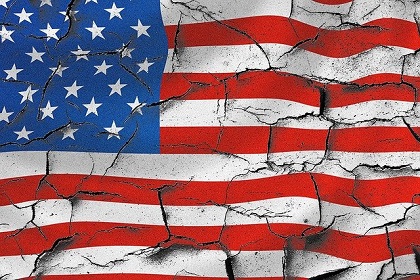ON Monday, June 26, 2021, Supreme Court Justice Clarence Thomas, a staunch conservative, released a 5-page statement questioning the necessity and even validity of a national ban on cannabis. In his statement, Justice Thomas opined, “A prohibition on interstate use or cultivation of marijuana may no longer be necessary or proper to support the federal government’s piecemeal approach.”

The justice’s opinion was prompted in the wake of the Supreme Court’s refusal to hear a case relating to tax deductions claimed on behalf of a Colorado medical marijuana dispensary.
Thomas referenced many past court cases linked to cannabis cultivation and sale. A 2005 ruling in Gonzales v. Raich was cited concerning prohibition. That court case, in particular, found that the federal government could enforce the prohibition against marijuana possession regardless of the state’s stance on the matter. Justice Thomas called the position more or less outdated in the statement’s opening paragraphs, which read, “Whatever the merits of Raich when it was decided, federal policies of the past 16 years have greatly undermined its reasoning. Once comprehensive, the Federal Government’s current approach is a half-in, half-out regime that simultaneously tolerates and forbids local use of marijuana. This contradictory and unstable state of affairs strains basic principles of federalism and conceals traps for the unwary.”
Justice Thomas’ statement goes on to reference numerous instances of policies that are in direct conflict with the 2005 ruling, such as 2009 and 2013 memos issued by the Department of Justice (DOJ) that specified the government would not interfere on state marijuana legalization schemes or prosecute individuals for such activities so long as the state laws allow.
As it currently stands, 36 states in the US permit medical marijuana, and 18 with legalized recreational laws on the books. In light of the quickly changing landscape of state-issued decrees on the legality of cannabis, Justice Thomas added, “Given all these developments, one can certainly understand why an ordinary person might think that the Federal Government has retreated from its once-absolute ban on marijuana.”
Adhering to tax codes and taking advantage of deducting operational and other business expenses are another hurdle for businesses legally operating within their state’s legal parameters. These are legitimate businesses according to the laws of their home state, though the federal government penalizes them and launches investigations into their business dealings, which can be costly to defend. Regarding the topic, Justice Thomas included in his statement, “legality under state law and the absence of federal criminal enforcement do not ensure equal treatment. At issue here is a provision of the Tax Code that allows most businesses to calculate their taxable income by subtracting from their gross revenue the cost of goods sold and other ordinary and necessary business expenses, such as rent and employee salaries…Under this rule, a business that is still in the red after it pays its workers and keeps the lights on might nonetheless owe substantial federal income tax.”
In that same vein of financial instability for cannabis businesses, Justice Thomas noted that federal marijuana prohibition leads many operators to conduct their business in cash because of banking restrictions. The federally backed financial institutions generally tasked with handling money for these companies are backed into a corner by the government. the result is a refusal to accept any dealings with cannabis businesses. These businesses are then seen as targets for burglaries and robberies.
All of these issues regarding federal marijuana laws, it is the principles of Federalism that Thomas argues are at risk, stating, “If the Government is now content to allow States to act ‘as laboratories, then it might no longer have authority to intrude on ‘[t]he States’ core police powers . . . to define criminal law and to protect the health, safety, and welfare of their citizens.”
While the Justice’s words may not invigorate any legal changes, it speaks volumes to see a member of the top court in the land release such a statement in advocacy of reconsideration of cannabis prohibition.